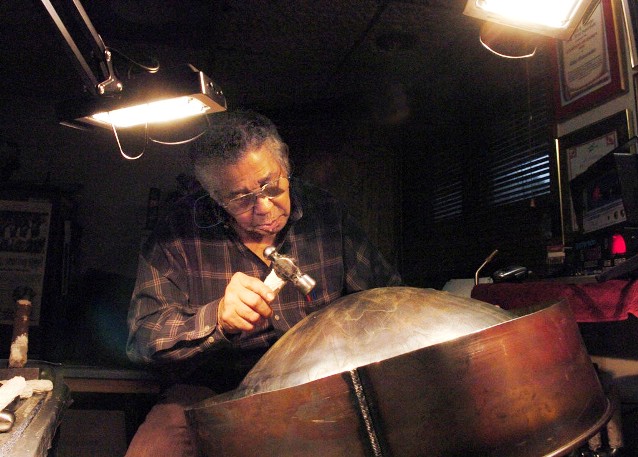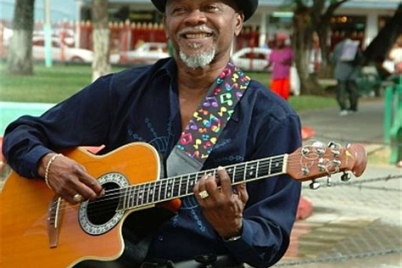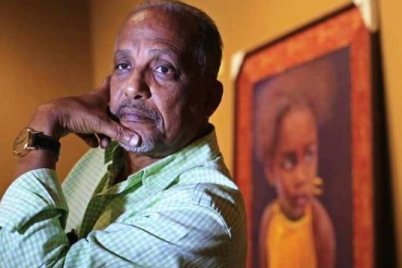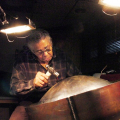
Ellie Mannette crafting a drum at his workshop in Morgantown, W.Va., in 2006. He was among the first to fashion a steel drum that had all the notes of the chromatic scale, so it could play any melody in any key. – Photo (Mannette Musical Instruments)
Elliot “Ellie” Mannette (5 November 1927 – 29 August 2018) was a Trinidadian musical instrument maker and steel pan musician, also known as “father of the modern steel pan instrument”.
Elliot was born in Sans Souci, Trinidad, Mannette where he developed a passion for metalworking. He delved deeply into the developing musical sounds from steel pans. In his youthful age starting from 11 years old he became involved in steel bands. Many people in Trinidad& Tobago believe that Mannette was the first person to use a discarded oil barrel to build a steel pan.
He crafted the lid to create a playing surface and fired the metal to improve the acoustic properties.
In 1951, TASPO (Trinidad All Steel Percussion Orchestra) traveled to Great Britain to present the new musical instrument at the Festival of Britain. Mannette was a member and tuner for this orchestra.
In 1948, Mannette was formally offered a scholarship to study music in London which he turned down in order to be able to build more steel pans.
In 2003, Mannette was admitted to the Hall of Fame of the Percussive Arts Society of the United States, when he was quoted as saying: “Looking back more than half a century during my humble beginnings in this unique art form, no one during that period could have envisioned the rapid growth of this instrument. Through the years as I developed my skills, my entire mindset was sharing my knowledge with others for the betterment of this instrument.”
Ellie Mannette crafting a drum at his workshop in Morgantown, W.Va., in 2006. He was among the first to fashion a steel drum that had all the notes of the chromatic scale, so it could play any melody in any key.CreditCreditvia Mannette Musical Instruments
A recent New York Times article, Ellie Mannette, Father of the Modern Steel Drum, Dies at 90, Karen Zraick states:
“Ellie Mannette, a Trinidadian musician known in the United States as the father of the modern steel drum, died on Wednesday at a hospital in Morgantown, W.Va. He was 90. The cause was kidney failure, his daughter Juliette Mannette said. As a child in Port of Spain, Trinidad’s capital, Mr. Mannette became fascinated with the bands he saw using trash cans and buckets as drums, hitting them in different ways to create different sounds. For the rest of his life, he sought to elevate and expand the craft of steel-pan music and to share it with the world.
He became a master tuner, builder and teacher. His shop, Mannette Instruments in Morgantown, is a major supplier of the instruments in the United States, and he trained students in tuning at West Virginia University for nearly 20 years. Numerous American universities now have steel-pan ensembles of their own, some led by Mr. Mannette’s former apprentices. Mr. Mannette was among the first to fashion a steel drum that had all the notes of the chromatic scale, so it could play any melody in any key.”
Read the complete article here
By Karl A. Haughton


































